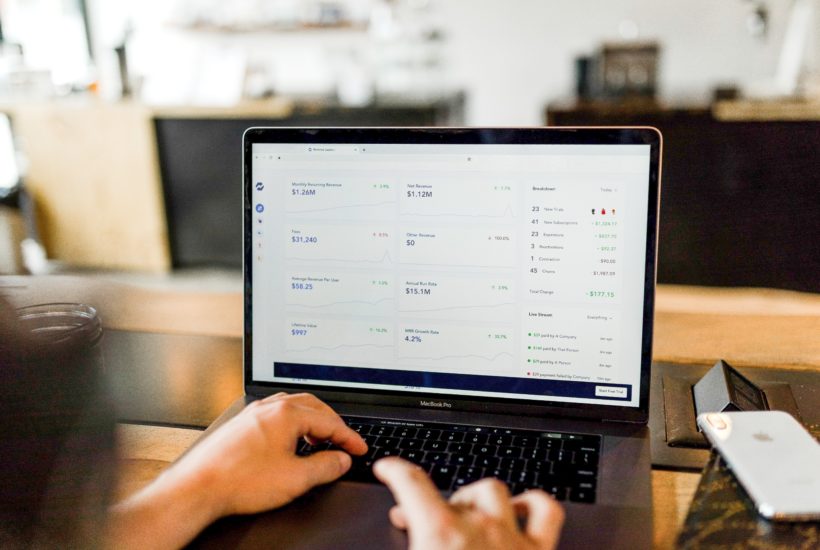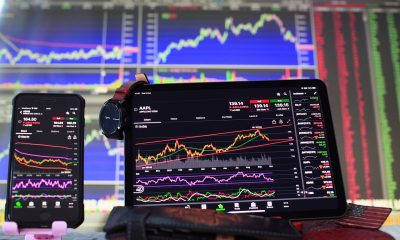Featured
CAC 40 ESG: Should you invest in the new index?
On March 22nd, Euronext announced the launch of the CAC 40 ESG index, which aims to identify the 40 companies in the CAC Large 60 index (the index of France’s 60 largest stocks) that demonstrate the best environmental, social, and governance (ESG) practices. The index responds to the growing market demand for sustainable investment tools.

In this article, you will discover an analysis of the new index created by Euronext: the Cac 40 ESG. The index gathers the 40 French companies with the best social and environmental practices. Why this new index? Who is included and who is excluded? Should you invest in it and how should you proceed?
Find the answers to the above questions and find the latest financial news in the world with our companion app Born2Invest.
What is the CAC 40 ESG? Why this new stock market index?
On March 22nd, Euronext announced the launch of the CAC 40 ESG index, which aims to identify the 40 companies in the CAC Large 60 index (the index of France’s 60 largest stocks) that demonstrate the best environmental, social, and governance (ESG) practices. Euronext has partnered with Vigeo Eiris (VE), a subsidiary of Moody’s, to provide the ESG assessment of the companies, based on the criteria of the SRI label of the French Ministry of Economy and Finance and the United Nations Global Compact. This index is the first national ESG index of Euronext.
The index responds to the growing market demand for sustainable investment tools. Sustainable investment seems to be becoming a fundamental movement, accelerated by the health crisis. For many investors, the sole search for performance is no longer enough. They want to include in their long-term strategy companies recognized for their social and environmental commitment. The quest for meaning and global benefits for all stakeholders is now a key concern for both institutional and individual investors.
Selection criteria for the CAC 40 ESG index
To select the stocks that make up the index, the Euronext financial center has combined several methodologies. From a list of the 60 largest French companies (the CAC Large 60 index), it excluded companies subject to controversy according to the principles of the Global Compact (e.g.: +5% of activity in fossil fuels, +10% in tobacco, etc.). It then applied a VE (Vigeo Eiris) score: a mark out of 100 according to some 40 criteria. It is planned to review the selection methodology each year according to Euronext recommendations.
The list of CAC 40 ESG companies: which large French companies are retained or excluded?
Nine “classic” CAC 40 companies are not included in the index: Airbus, Alstom, ArcelorMittal, Dassault Systèmes, EssilorLuxottica, Hermès, Saint Gobain, Thales and Total.
The nine companies that take their place are Accor, Arkema, EDF, Gecina, Klépierre, Sodexo, Solvay, Suez and Valeo. While some companies are logically included in the index (Danone, L’Oréal), one may wonder about the relevance of certain choices: why is Vinci included when the group is in the middle of a controversy in Qatar? Why isn’t Total present while it is transforming its energy mix? What about the sustainable solutions developed by Dassault Systèmes and Saint Gobain?
Should you invest in the CAC 40 ESG index?
This question leads us to wonder about the convictions of responsible investment: First, is it a fad or a sustainable trend? Furthermore, do the criteria of ESG agencies such as Vigeo Eiris really correspond to investors’ expectations?
It has been shown that SRI funds have a risk/return ratio at least as good as ordinary funds. In fact, according to the FIR and Polytechnique report, SRI funds have a performance comparable to that of the market, and even 62% of these funds outperform “classic” funds, in all asset classes. Shareholders would therefore have an interest in supporting ESG initiatives over the long term. However, the reality may be different in practice: Danone shareholders recently ousted Emmanuel Faber (ex-CEO), known for his involvement in environmental and social issues, blaming him for the company’s poor performance. A hard blow for sustainable capitalism!
In addition, ESG practices are widely publicized in the media and many funds take advantage of this to “greenwash” and surf on this publicity wave. This is what Tariq Fancy, the former investment director of Blackrock, underlines in an article published by Bloomberg. Thus, to rationalize their choice, investors rely on these labels awarded by agencies like Vigeo Eiris.
Here again, it is possible to question the adequacy of these ratings with the real expectations of investors. In the end, companies try to answer a questionnaire in order to obtain these famous labels, sometimes to the detriment of real strategic actions with a strong impact on social and environmental issues. Some companies appear in certain rankings and do not appear in others… This is the case of Dassault Systèmes which, for example, does not appear in the CAC 40 ESG but is part of the Corporate Knights Clean 200 index. In this context, what should we think about the reliability of these labels?
In conclusion, it is advisable to look precisely at which companies are included in these funds or indices and to conduct one’s own study, according to the criteria that one values most as an investor.
How to invest in the CAC 40 ESG index?
Euronext plans to license the CAC 40 ESG index to several financial services companies around the world, such as the well-known ETF issuers Amundi, BNP Paribas AM and Lyxor. To invest in a future ETF replicating the CAC40 ESG index, you can approach your usual stockbroker to place a purchase order.
__
(Featured image by Austin Distel via Unsplash)
DISCLAIMER: This article was written by a third party contributor and does not reflect the opinion of Born2Invest, its management, staff or its associates. Please review our disclaimer for more information.
This article may include forward-looking statements. These forward-looking statements generally are identified by the words “believe,” “project,” “estimate,” “become,” “plan,” “will,” and similar expressions. These forward-looking statements involve known and unknown risks as well as uncertainties, including those discussed in the following cautionary statements and elsewhere in this article and on this site. Although the Company may believe that its expectations are based on reasonable assumptions, the actual results that the Company may achieve may differ materially from any forward-looking statements, which reflect the opinions of the management of the Company only as of the date hereof. Additionally, please make sure to read these important disclosures.
First published in Cafe de la BOURSE, a third-party contributor translated and adapted the article from the original. In case of discrepancy, the original will prevail.
Although we made reasonable efforts to provide accurate translations, some parts may be incorrect. Born2Invest assumes no responsibility for errors, omissions or ambiguities in the translations provided on this website. Any person or entity relying on translated content does so at their own risk. Born2Invest is not responsible for losses caused by such reliance on the accuracy or reliability of translated information. If you wish to report an error or inaccuracy in the translation, we encourage you to contact us.

-

 Crowdfunding6 days ago
Crowdfunding6 days agoBSG Stahl Riesa Launches Crowdfunding for New Floodlights
-

 Africa2 weeks ago
Africa2 weeks agoMASI Surge Exposes Market Blind Spot: The SAMIR Freeze and Hidden Risks
-

 Cannabis3 days ago
Cannabis3 days agoSnoop Dogg Searches for the Lost “Orange” Cannabis Strain After Launching Treats to Eat
-

 Crypto1 week ago
Crypto1 week agoIntesa Sanpaolo Signals Institutional Shift With Major Bitcoin ETF Investments


















